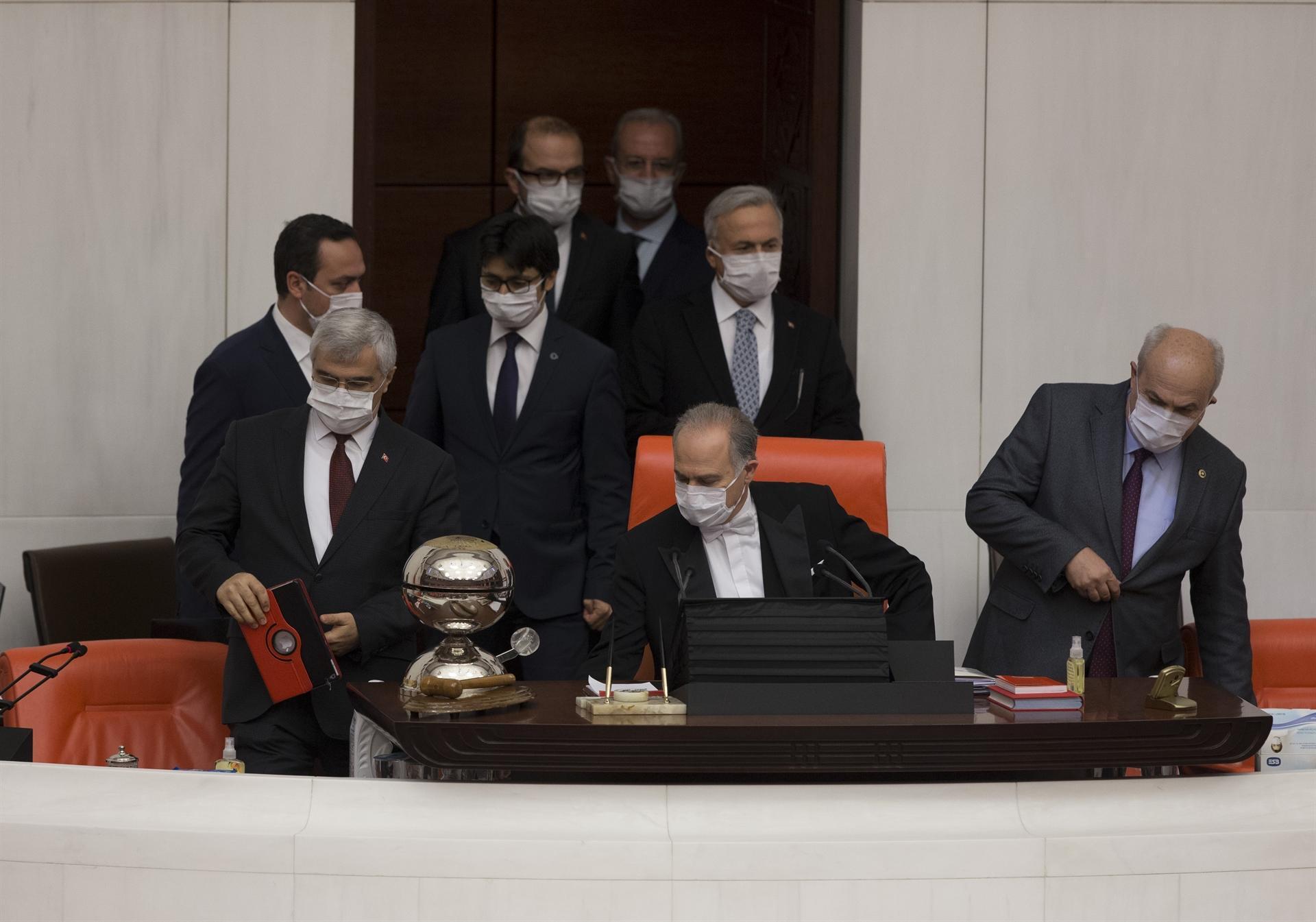
A draft bill seeking to make amendments in criminal execution law that would result in the release of around 90,000 inmates started to be discussed in the parliament.
The ruling Justice and Development Party (AKP) submitted the draft proposal to the Nationalist Movement Party (MHP) about two weeks ago and started deliberations on the matter with the members of two opposition parties, the Republican People’s Party (CHP) and the İYİ (Good) Party, last week.
The bill passed the parliament’s Justice Commission and the General Assembly convened on April 7 to discuss the new regulations.
The bill oversees amendments in 11 different codes and consists of 70 articles, AKP’s group deputy chair Cahit Özkan said.
“Enforcement is a difficult area to regulate. In this sense, offenses that hurt the public’s conscience, [such as] sexual [assault] offenses, narcotic crimes, murder in the first degree, violence against women and terrorism offenses have been left out of the scope,” Özkan added.
The bill also oversees regulations regarding the prison’s extent, due to the COVID-19 outbreak in the country, according to Özkan.
With the bill, convicts in open prisons will be able to serve their time at house arrest for two months, during the coronavirus pandemic. The Justice Ministry will also be able to extend the house arrests for at most two times.
Asked about how many inmates will be able to benefit from the new regulation, Özkan said that about 90,000 is estimated to serve their time under house arrest.
“Right now, in scope of temporary and permanent enforcement regulations, about 45,000 benefits. With those who will be transferred to homes due to the pandemic, this figure reaches 90,000,” he said.
The bill also brings in “permanent” regulations, Özkan said.
“Time spent at penal institution are being re-determined,” he said. He also added that the permanent enforcement rates for crimes except those mentioned above, have been determined as one half.
He also said that the bill aims to “eliminate the image of impunity” regarding probation.
By changing the probation criteria, the bill will ensure convicts get probation in accordance with their penalties, rather than a fixed one-year probation for the inmates.
The bill also aims to increase the penalties for some offenses, especially for criminal organizations, in accordance with the harm they do to the public order, Özkan said.
“We also aim to increase the penalty for pawnbroking that does much harm in the society,” he added.
The bill also oversees “temporary” regulations in probation practices.
Özkan said that the probation period will be raised to three years, rather than its former timespan, which was two years, for crimes committed before July 1, 2016.
Good conduct too will be eliminated from the system and will be subject to the observation and administration commission, Özkan said.
The bill includes regulations for women, mothers, elderly and the ill as well.
Enforcement will be implemented to inmates at certain conditions, who are aged over 65, women who have children between the ages 0 and 6 and ill convicts who are unable to take care of themselves, in residences.
With the bill, judges’ duties and authorization powers will also get extended.